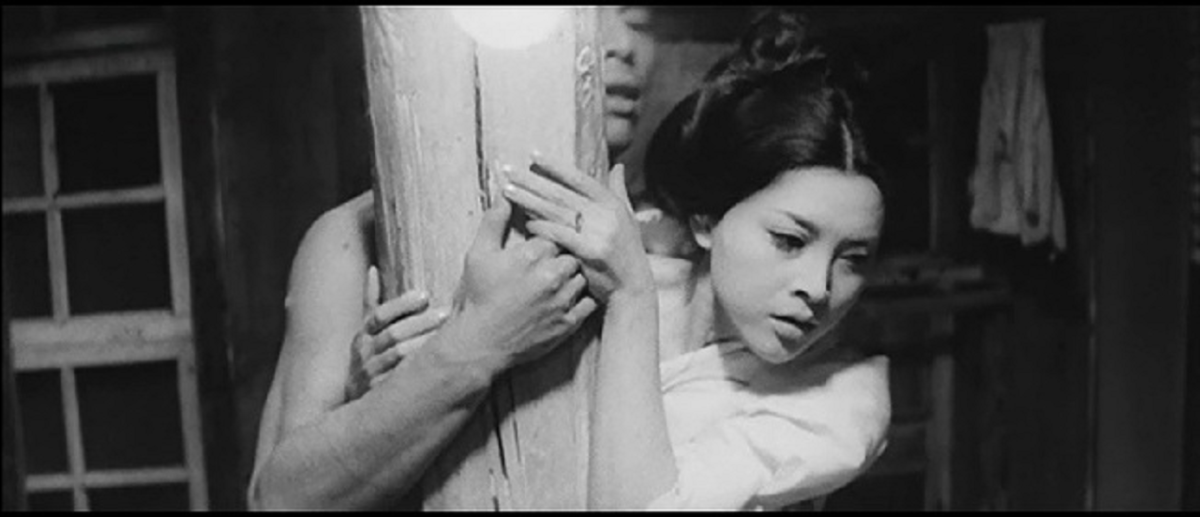Last Updated on October 6, 2020 by rob
30-something Oriko (Mariko Okada), trapped in a loveless marriage, encounters her mother’s younger lover, a sculptor who crafts feminine shapes out of stone and begins a friendship with him. At a party the sight of her swinging sister-in-law being roughly seduced at the hands of a labourer stirs her own sexual desires and Oriko begins to understand the poetry her mother (Yoko Minami) wrote in which she expressed a desire to live life to the full.
Known as Flames of Love, which may be a more literal translation of the original Japanese title Joen, this is a strikingly visualised exploration of a woman’s sexual fears and desires and how she briefly breaks free of those fears. In essence it’s an old fashioned woman’s picture. The difference is that most of the melodrama has been stripped away leaving little more than the basic plot and replaced by an impressionistic style loaded with visual symbols, metaphors (the brutish labourer Oriko sleeps with who comes to embody all her worst fears about men and sex) and locations that frequently come across as expressions of Oriko’s subconscious desires. A landscape of the mind you might say.
In the wrong hands this could so easily be unintentionally hilarious but the cool performances of the cast and Yoshida’s fascinating compositions – he’s very fond of placing characters at either end of the widescreen frame, or isolating them within windows so you have figures framed within a frame – transform what in other hands could have been a standard sob story into something thoughtful, visually compelling and not entirely without emotion – although as an arthouse film it’s emotion in a more reflective context than that of its mainstream cousins. It’s a not unattractive combination though with Sei Ikeno’s slinky score and Mitsugi Kanau’s stunning black and white cinematography making notable contributions.


